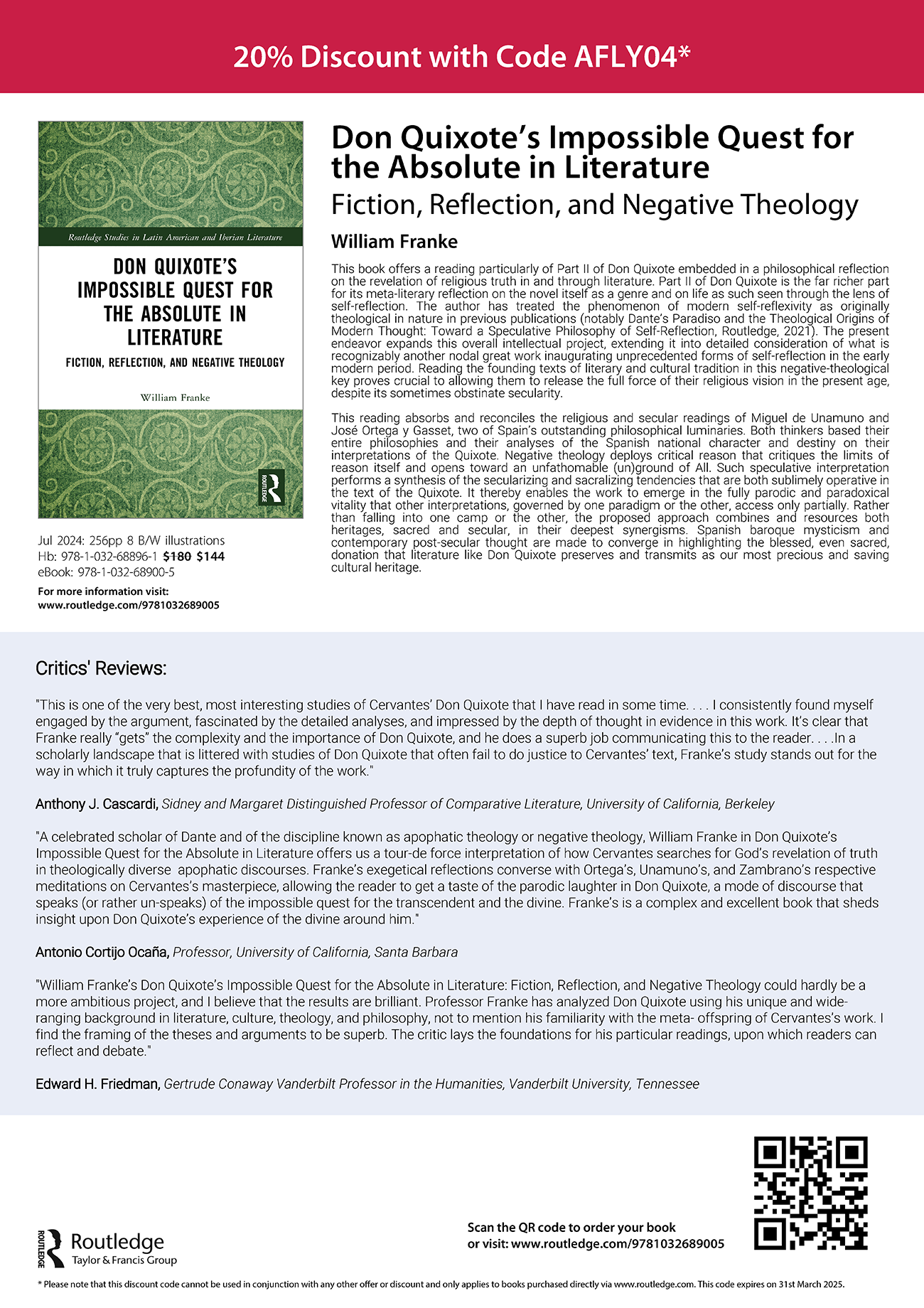Don Quixote
Don Quixote‘s Impossible Quest for the Absolute in Literature: Fiction, Reflection, and Negative Theology (Routledge 2024)

Critics Views:
“This is one of the very best, most interesting studies of Cervantes’ Don Quixote that I have read in some time. . . . I consistently found myself engaged by the argument, fascinated by the detailed analyses, and impressed by the depth of thought in evidence in this work. It’s clear that Franke really “gets” the complexity and the importance of Don Quixote, and he does a superb job communicating this to the reader. . . .In a scholarly landscape that is littered with studies of Don Quixote that often fail to do justice to Cervantes’ text, Franke’s study stands out for the way in which it truly captures the profundity of the work.”
–Anthony J. Cascardi, Sidney and Margaret Distinguished Professor of Comparative Literature, University of California, Berkeley
A celebrated scholar of Dante and of the discipline known as apophatic theology or negative theology, William Franke in Don Quixote’s Impossible Quest for the Absolute in Literature offers us a tour-de force interpretation of how Cervantes searches for God’s revelation of truth in theologically diverse apophatic discourses. Franke’s exegetical reflections converse with Ortega’s, Unamuno’s, and Zambrano’s respective meditations on Cervantes’s masterpiece, allowing the reader to get a taste of the parodic laughter in Don Quixote, a mode of discourse that speaks (or rather un-speaks) of the impossible quest for the transcendent and the divine. Franke’s is a complex and excellent book that sheds insight upon Don Quixote’s experience of the divine around him.
–Antonio Cortijo Ocaña, Professor, University of California, Santa Barbara
William Franke’s Don Quixote’s Impossible Quest for the Absolute in Literature: Fiction, Reflection, and Negative Theology could hardly be a more ambitious project, and I believe that the results are brilliant. Professor Franke has analyzed Don Quixote using his unique and wide-ranging background in literature, culture, theology, and philosophy, not to mention his familiarity with the meta- offspring of Cervantes’s work. I find the framing of the theses and arguments to be superb. The critic lays the foundations for his particular readings, upon which readers can reflect and debate.
-Edward H. Friedman, Gertrude Conaway Vanderbilt Professor in the Humanities, Vanderbilt University, Tennessee


©2026 Vanderbilt University ·
Site Development: University Web Communications